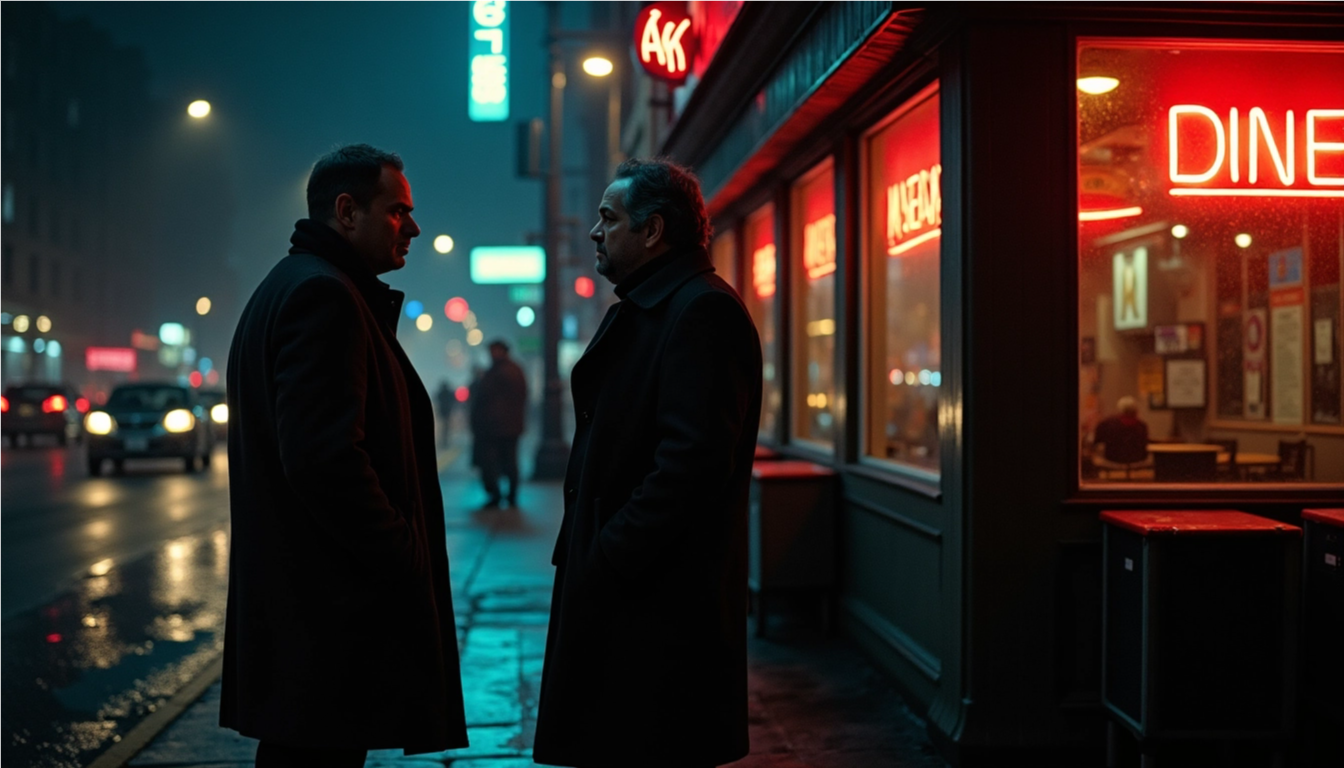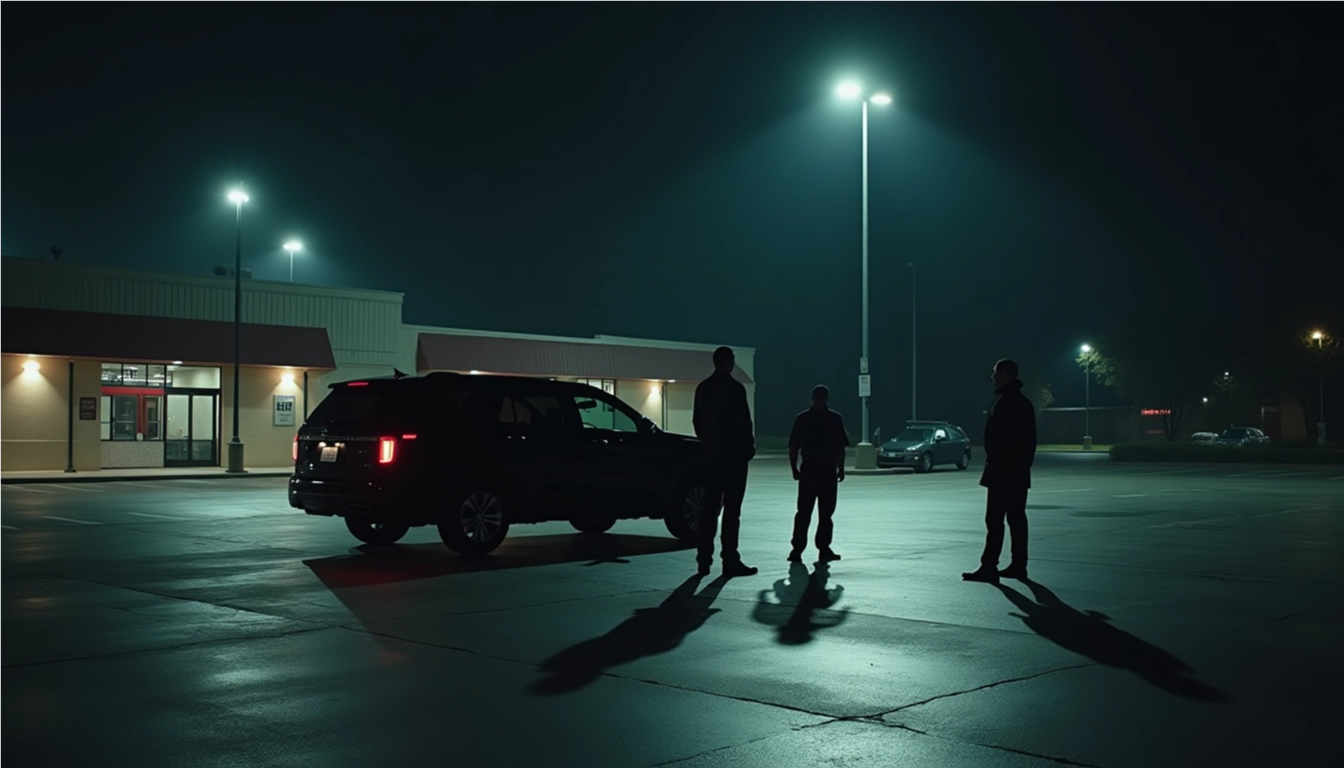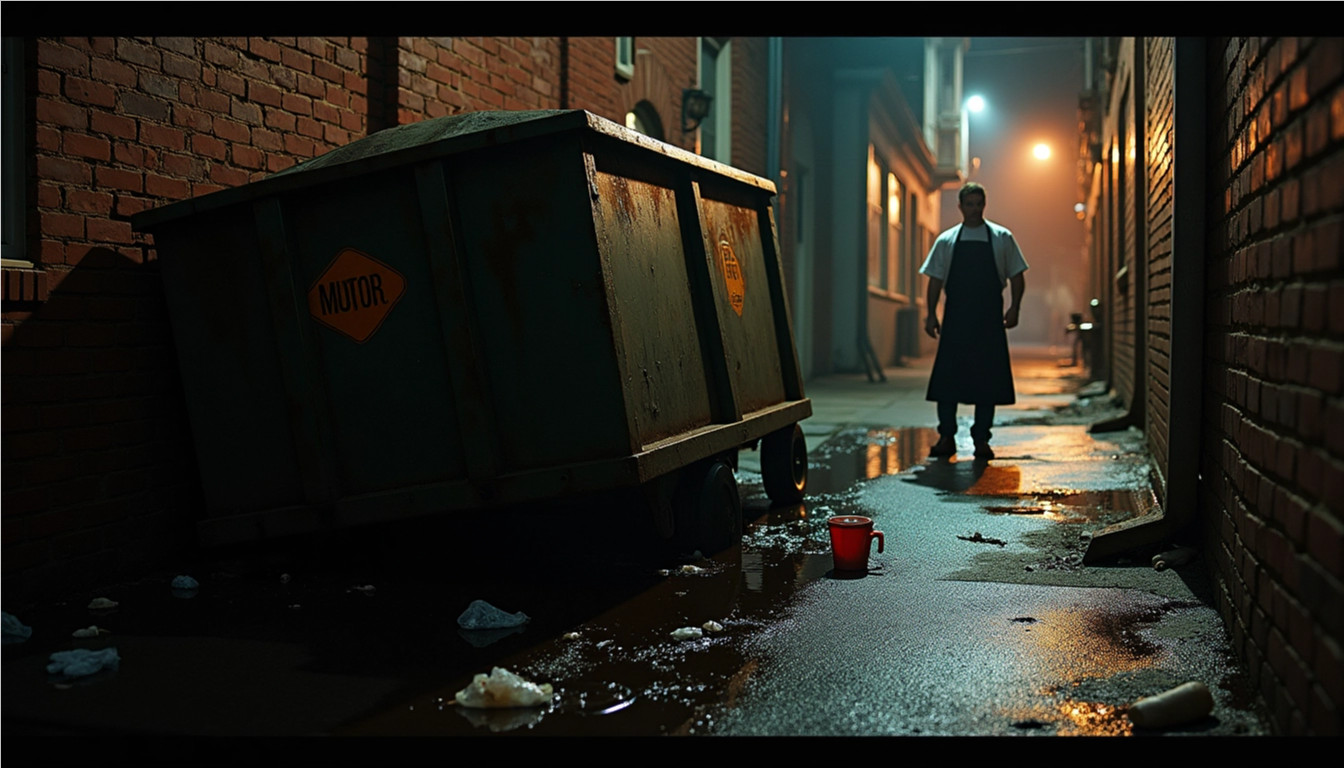The Waste Wars: Pushback
How a newcomer's clean business model is threatening to upend decades of mob-controlled garbage collection.
The Waste Wars – A Three-Part Series
Part 2: Pushback
South Philly’s garbage game has always been PhilWaste’s territory — rough trucks, rougher men, and a silent understanding that the streets stay theirs. But a shiny new competitor, GreenLine Waste Services, just rolled into town with polished rigs and promises of cleaner, cheaper pickups. To the city, it looks like healthy competition. To the Marcuccios, it’s a threat to decades of control. Behind the trash routes and union chatter, tensions are rising… and not everyone’s walking away from these “business talks” unscathed.
By the time I filed last week’s piece on GreenLine Waste Services breaking into Philadelphia’s garbage market, the calls were already coming in.
Not from GreenLine. Not from PhilWaste. From the people caught in the middle.
Restaurant owners. Warehouse managers. Small shopkeepers.
They all had the same theme: things were getting… tense.
From Competition to Confrontation
In business school textbooks, competition is supposed to be healthy. It drives prices down, improves service, and rewards innovation. That’s the theory. But here, on the cracked sidewalks and narrow back alleys of Philadelphia, competition is more personal.
It’s one thing to lose a customer to a competitor’s slick marketing. It’s another to lose a route you’ve been running for twenty years—the kind of route where you know the janitor’s name, where the security guard brings you coffee in winter.
PhilWaste has built its empire on those routes. And for the first time in decades, they’re losing some.
When a GreenLine truck rolls in where a PhilWaste truck used to stop, it’s not just a new logo on the bins. It’s a signal to the whole block that someone else is making the pickups, cashing the checks, and holding the relationships that come with them.
That shift isn’t going over quietly.
The First Hit
Two weeks ago, a GreenLine driver I’ll call “Mark” (he asked me not to use his real name) was finishing his night pickups in Port Richmond. At 2:15 a.m., he swung into the lot of a strip mall to get the last dumpster on his route.
As he stepped out of the cab, a dark SUV pulled in behind him, blocking his truck. Two men got out.
“They didn’t have masks or anything,” Mark told me. “One of them asked me if I knew whose spot I was in. I said I was just doing my job. That’s when the other guy slapped the mirror right off my truck and told me to tell my boss to stay out of Philly.”
Mark called the police. The report lists it as “criminal mischief.” No arrests. No follow-up.
The Dumpster Fire
A few days later, in South Philly, a family-owned bar switched to GreenLine. On their first pickup day, they found their dumpster overturned in the alley, half its contents spilled across the pavement.
“I figured kids at first,” the owner told me. “Then I saw someone had poured something down the drain hole—looked like motor oil. Stunk like hell.”
The fire marshal said it wasn’t enough to ignite on its own, but the timing wasn’t lost on anyone.
That night, the owner got an anonymous call on the bar’s landline. Just one sentence: “PhilWaste keeps the streets clean. Think about that.”
Union Talk
The public face of this fight hasn’t been PhilWaste’s executives. It’s been the rank-and-file—guys who know every pothole and back alley on their routes.
I met with a union steward from the sanitation workers’ local who agreed to talk if I didn’t use his name. We met in a diner in Northeast Philly, far from his usual stomping grounds.
“This isn’t just about jobs,” he said. “It’s about respect. We’ve been hauling this city’s trash through blizzards, heat waves, strikes. Now some company from Jersey thinks they can come in and cherry-pick the best routes?”
I asked if the union would strike.
“Officially? No comment. Off the record? If the right people say the word, you’ll see trucks parked and picket lines up before sunrise. And it won’t just be about trash. Deliveries will slow. Construction will stop. We know how to get the city’s attention.”
Patterns in the Incidents
If this were just a handful of scattered acts of vandalism, it could be chalked up to coincidence. But there’s a pattern emerging:
Timing: All incidents happen within two weeks of a customer switching from PhilWaste to GreenLine.
Targets: High-visibility accounts—restaurants, multi-unit residential complexes, busy commercial corridors.
Message: In most cases, someone delivers a warning, either in person or by phone.
In one case, a Center City property manager received a visit from a PhilWaste representative two days after signing with GreenLine.
“They brought coffee and pastries,” the manager told me. “Chatted about sports. Then the guy leaned in and said, ‘Sometimes it’s worth paying a little more for peace of mind.’”
The manager didn’t switch back. Yet.
A Message Without Fingerprints
Nobody’s filing lawsuits. Nobody’s naming names.
That’s not how this works in Philadelphia. You don’t point fingers—you quietly solve the problem. And in this case, “solving” often means going back to what you know, even if it costs more.
A senior official in the mayor’s office, speaking off the record, admitted they’ve been hearing complaints but can’t act without formal reports.
“Half the people calling us don’t want it on paper,” the official said. “They’re scared it’ll make things worse. And if PhilWaste has the relationships people say they do, it’s not just a business issue—it’s a political one.”
GreenLine’s Position
I reached out to GreenLine for comment. Their spokesperson sent me a polished statement about “our commitment to fair business practices and the safety of our employees and clients.”
When I pressed about specific incidents, they didn’t confirm or deny them—only that they were “working closely with law enforcement where appropriate.”
The spokesperson ended with a line that sounded more like a pledge than PR: “We intend to be here for the long term.”
PhilWaste’s Silence
Multiple calls and emails to PhilWaste’s corporate office went unanswered. I did, however, get a call from someone identifying himself only as “a friend of the company.”
He told me, “Nobody owns this city’s trash forever. But you better earn your spot. And if you don’t, somebody else will take it back.” Then he hung up.
Escalation Is Inevitable
The problem with pressure tactics—whether they’re officially sanctioned or just “overzealous supporters”—is that they often create the very crisis they’re meant to avoid.
By pushing GreenLine and their customers, PhilWaste (or those acting in its interest) is creating headlines. And in this city, the more people hear about a fight, the more they pick sides.
Some will see GreenLine as the underdog, the clean newcomer challenging the entrenched power. Others will stick with the devil they know.
But either way, the lines are hardening.
What’s at Stake
This isn’t just about a few routes. Garbage collection in Philadelphia is a multimillion-dollar industry, tied into construction, real estate, and municipal budgets. Whoever controls it doesn’t just haul trash—they have influence over what gets built, who gets hired, and whose phone calls get returned at City Hall.
If PhilWaste loses a significant share to GreenLine, it’s not just lost revenue. It’s lost leverage.
And if the rumors I’m hearing about a possible strike are true, the city could be in for a much larger mess than a few overturned dumpsters.
I’ve covered enough of these stories to know that what starts with slashed tires and anonymous calls rarely ends there. The next step is public—visible disruptions meant to remind everyone who runs the streets.
Whether that comes from union action, deliberate slowdowns, or something less polite, I don’t know. But I’d bet my notebook we’re going to find out soon.
Stay vigilant,
Will Ryland





